This year’s Avalon Air Show in Geelong was the first chance for the public to see the long-delayed Joint Strike Fighter in action. At a cost of at least $100 million per aircraft, Canberra is slated to spend $17 billion on 72 F-35s in the coming years.
Manufacturer Lockheed Martin, the world’s biggest defence contractor, has faced countless problems with the plane including cost blowouts (spending more than $US1 trillion and counting), a Pentagon report in January finding 276 deficiencies (with 20 new issues discovered per month) and consistent troubles with overheating and cybersecurity. An Australian contractor on the aircraft was recently hacked, with sensitive material stolen.
None of this dampened the mood at Avalon. Prime Minister Malcolm Turnbull, along with Defence Minister Marise Payne, Defence Industry Minister Christopher Pyne and Lockheed Martin CEO Marillyn Hewson, praised the plane and Australia’s growing defence sector.
“It is an example of how our defence industry plan is not simply securing our Air Force and our Army and our Navy with the capabilities they need to keep us safe in the 21st century,” Turnbull said. “It is driving the advanced manufacturing, the jobs, the advanced technology that Australians need to make sure our children and grandchildren have the opportunities in the years ahead.”
Billed as Australia’s premiere showcase of defence, civilian and aerospace equipment, sponsored by the world’s major defence companies such as BAE Systems, Raytheon, Thales, L3, Lockheed Martin and Northrop Grumman, along with Australia’s Department of Defence and the Victorian Labor government, this year was the largest in Avalon’s history, with over 210,000 people in attendance.
But away from Avalon’s glitzy surface, and its promotion of a family-friendly event to watch the world’s most sophisticated aircraft, is a darker reality. Australia’s defence sector has hugely expanded in recent years with barely any public discussion, let alone debate in federal parliament.
It’s a nearly impossible task to discover exactly what Australia is selling and to whom because the federal government refuses to say, but nuggets of information make it clear that Canberra is aggressively selling weapons and defence equipment to countries involved in conflicts where human rights abuses are being perpetrated.
Australian Defence Magazine released figures in December 2016 that revealed the scope of the industry. The top 40 defence contractors, including top players BAE Systems Australia and Raytheon Australia, had an annual turnover of $10.384 billion, 11 per cent higher than 2015 and the biggest in the magazine’s 21-year history.
According to Amnesty International, in 2016 the world spent $US1.69 trillion on the military, with the US Pentagon issuing $US304 billion in contracts to corporations including Lockheed Martin and Boeing.
But how transparent is Australia’s defence spending internationally? In December 2016, Christopher Pyne visited Saudi Arabia and met with senior members of the regime, including the head of the National Guard. A Freedom of Information (FOI) request, filed in April by the Australian group, The Medical Association for Prevention of War, found that Canberra was looking to expand the reach of its domestic defence sector and had no issue selling equipment with dual use (for either military or civilian purposes). The government refused to give a full list of companies accompanying Pyne.
Saudi Arabia is already the world’s second biggest purchaser of weapons. The Trump administration recently signed a $US350 billion arms deal with Riyadh for the next 10 years.
Saudi Arabia launched military action against Yemen’s Houthi rebels in 2015 and the humanitarian situation in what was already the poorest country in the Middle East has rapidly deteriorated. At least 10,000 civilians have been killed, cholera ravages millions of citizens and Saudi Arabia has been accused of committing war crimes by human rights groups. In October the UN included the kingdom on a blacklist for killing and injuring children (though the UN has previously backed down on similar steps under Saudi pressure).
Britain has refused to support a United Nations investigation into atrocities because it could affect trade and weapons sales and in July Britain’s High Court backed London’s arms sales to Saudi Arabia as legal. Charity War Child UK has claimed that British arms companies have earned more than £6 billion ($10.3 billion) from trade with Saudi Arabia since the Yemen conflict began (Holland banned such sales in 2016).
Australia has refused to condemn Saudi actions in Yemen. The heavily redacted FOI revealed that there was discussion during Pyne’s December trip of the Royal Saudi Naval Force eastern fleet expansion with a budget of $26 billion (Australian shipbuilder Austal accompanied Pyne on his visit), talk of the Tasmanian, Incat-designed and built aluminium catamaran damaged by a Houthi attack off the coast of Yemen in October 2016 and consultation about a future submarine program (though whose was not clear).
I asked the Australian Department of Defence for further information on any dealings with Saudi Arabia and was told that “Defence does not release the details of export approvals due to commercial-in-confidence restrictions. Exports of military equipment and technology to Saudi Arabia were assessed in line with Australian export control provisions.”
Then Greens senator Scott Ludlam was one of the only parliamentarians who questioned Australia’s dealings with Saudi Arabia. He told Fairfax Media that he could find nobody in the Labor Party to support his enquiries into Pyne’s trip.
Greens leader Richard Di Natale told me that he condemned Australia’s “military-industrial complex”: “Why promote Australia as a global arms dealer when we could be revitalising our manufacturing industry around new energy technology?”
The Stockholm International Peace Research Institute (SIPRI) is one of the world’s leading researchers on conflict and armaments. Its latest figures, for the period 2010-2016, showed ships as the biggest Australian export, along with aircraft, missiles and armoured vehicles. The list of customers included Papua New Guinea, Oman, the Philippines, India, Indonesia, Singapore and the United States.
I asked the Department of Defence to whom they were selling defence equipment. They said that no export licences were granted between January 2015 and the present day to Myanmar (currently engaged in ethnic cleansing against the Rohingya, according to the UN), but during the same period dual-use equipment and technology was sold to the United Arab Emirates and Israel.
The UAE stands accused of committing abuses in Libya and Yemen while Israel has been condemned by the UN and human rights groups for war crimes in Gaza and the West Bank. An Australian intelligence company, iOmniscient, is selling surveillance equipment to the brutal Bahrain dictatorship. Canberra is already one of the world’s biggestimporters and exporters of small arms.
The federal government’s 2016 Defence White Paper outlined a $200 billion investment over the next 10 years. Canberra promotes its wares at events such as this year’s Defence and Security Equipment International conference in London, though protesters greeted the tens of thousands of participants.
Pyne said in July that his ambition was for Australia to “enormously increase that capacity and send a lot more weapons overseas to appropriate countries and appropriate places of course. We simply wouldn’t do so willy-nilly. We have a particular process for that.”
He says that current contracts are worth $200 billion in the coming years. That’s a massive expansion of defence exports from 2003/2004, when they amounted to just under $600 million.
The move was slammed by World Vision Australia chief Tim Costello, who questioned whether Australia should be “exporting death and profiting from bloodshed … Do we really want that to be what people think of when they see the brand ‘made in Australia’?”
The federal government states that export applications are granted against the following criteria: international obligations, human rights, regional security, national security and foreign policy. The government’s Global Supply Chain program gives exclusive access to Australian companies to enter into close commercial relationships with, and provide vital parts to, Lockheed Martin, Rheinmetall, Northrop Grumman, Thales, Boeing, BAE and Raytheon.
Some of these corporations have unprecedented access to decision making in the Trump administration, with the US President filling key roles in Homeland Security and the Pentagon with defence contractors. However, Barack Obama sold more weapons globally than any US commander-in-chief before him.
Australia’s ambition to expand its defence sector is intimately tied to the growth of the world’s biggest weapons companies on Australian soil, despite them being connected to some of the world’s major conflicts and controversies.
Thales is one of the biggest beneficiaries of the European Union’s increasingly militarised border policies and Lockheed Martin is supplying weapons to Saudi Arabia. Lockheed Martin refused to answer my questions about its role in Australia despite its presence growing by the year (including the establishment of a research facility at the University of Melbourne, praised by Pyne).
But Australia’s goal of becoming a global weapons dealer may be futile. SIPRI’s senior researcher Siemon Wezeman has closely studied Australia’s defence policies and questions their stated aims.
“To be honest, I don’t see Australia becoming a major arms exporter in any near future,” he told me. “The list of exports in the last decade gives not the greatest reasons to be optimistic about exports of major weapons from Australia, the more so since the new-produced weapons listed are not very advanced and are not niche weapons. Australia has no comparative advantage and many other countries produce or can produce them cheaper.”
Wezeman stresses that Australia has made decisions to largely “cater for its own needs, largely now as subsidiaries of foreign companies, which works nicely if the government wants to spend its money in Australia (even if that may be not 100 per cent cost-effective).” He sees China, South Korea, Turkey, Japan and Singapore elbowing out Australia on the world stage because of their industrial, political and military connections.
In his seminal 2011 book on the global arms trade The Shadow World, journalist Andrew Feinstein exposes the fallacies of a nation’s expanding defence sector. “The arms industry’s economic contribution is undermined by the frequency with which its main players around the world, Lockheed Martin, BAE, Boeing, Northrop Grumman … are implicated in grand corruption, inefficiency and wastage of public resources,” he wrote.
Feinstein concludes that the arms trade “often makes us poorer, not richer, less not more safe, and governed not in our own interests but for the benefit of a small, self-serving elite, seemingly above the law, protected by the secrecy of national security and accountable to no one”.
Antony Loewenstein is an independent journalist, filmmaker, author of Disaster Capitalism: Making A Killing Out Of Catastropheand is currently working on a book about the global war on drugs.
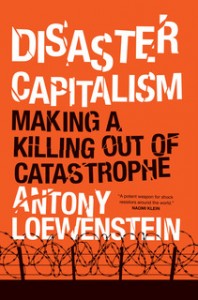
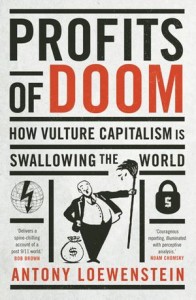 Vulture capitalism has seen the corporation become more powerful than the state, and yet its work is often done by stealth, supported by political and media elites. The result is privatised wars and outsourced detention centres, mining companies pillaging precious land in developing countries and struggling nations invaded by NGOs and the corporate dollar.
Best-selling journalist Antony Loewenstein travels to Afghanistan, Pakistan, Haiti, Papua New Guinea and across Australia to witness the reality of this largely hidden world of privatised detention centres, outsourced aid, destructive resource wars and militarized private security. Who is involved and why? Can it be stopped? What are the alternatives in a globalised world?
Vulture capitalism has seen the corporation become more powerful than the state, and yet its work is often done by stealth, supported by political and media elites. The result is privatised wars and outsourced detention centres, mining companies pillaging precious land in developing countries and struggling nations invaded by NGOs and the corporate dollar.
Best-selling journalist Antony Loewenstein travels to Afghanistan, Pakistan, Haiti, Papua New Guinea and across Australia to witness the reality of this largely hidden world of privatised detention centres, outsourced aid, destructive resource wars and militarized private security. Who is involved and why? Can it be stopped? What are the alternatives in a globalised world? 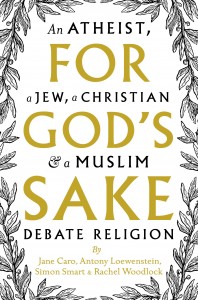
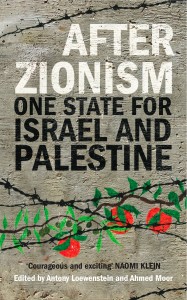
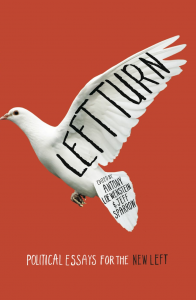 The 2008 financial crisis opened the door for a bold, progressive social movement. But despite widespread revulsion at economic inequity and political opportunism, after the crash very little has changed.
Has the Left failed? What agenda should progressives pursue? And what alternatives do they dare to imagine?
The 2008 financial crisis opened the door for a bold, progressive social movement. But despite widespread revulsion at economic inequity and political opportunism, after the crash very little has changed.
Has the Left failed? What agenda should progressives pursue? And what alternatives do they dare to imagine?
 The Blogging Revolution, released by
The Blogging Revolution, released by  The best-selling book on the Israel/Palestine conflict,
The best-selling book on the Israel/Palestine conflict,